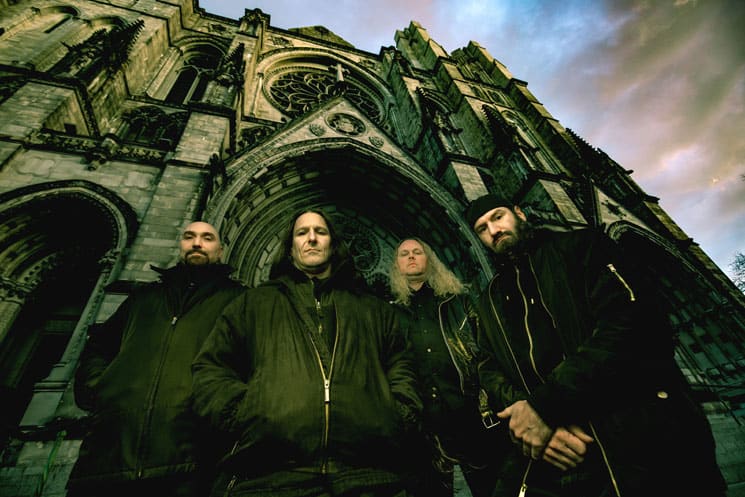New York death metal masters Immolation have been a staple in the metal underground metal since their 1988 inception. They've released album after album of exceptionally well-written material that preserves the band's early sound, which helped define the city's '90s death metal scene. Their tenth record, Atonement, out February 24 on Nuclear Blast, is no exception.
As vocalist/bassist Ross Dolan tells Exclaim!, improving on each album is their goal, but maintaining Immolation's identity over the past three decades has been their first priority.
"The essence of what we were when we started is still there, it's still strong," Dolan says. "Every record sounds a little bit different, but I think overall the identity is still there. I think we've grown as people and as writers and musicians, of course, so the writing has gotten better because we've had so many years' experience.
"It's fun to try new things with different records, but we understand we can't cross over certain lines and go into different territories because the fans would really not be into that and it's not something we want to do either. When you have something good, 'If it's not broke, don't fix it,'" he laughs.
Although Atonement still features the same pummelling aggression, it also incorporates a more ominous atmosphere than 2013's Kingdom of Conspiracy. "This is a different record than Kingdom; it's got that aggressive side, but it also has that dark, kind of creepy, haunting side."
While Immolation's sound hasn't changed much over the years, neither has their passion. "Anytime we embark on the musical journey once again and start a new album cycle, it's fresh and it's exciting and it's exactly the feeling we had when we were 18 or 19. So that hasn't changed and I think maybe that's why you see that longevity in these bands. You have to love it to do it. If you're into this for anything else, it's just not going to work and I think the bands that fall away early on are the ones who got into it for the wrong reasons."
As vocalist/bassist Ross Dolan tells Exclaim!, improving on each album is their goal, but maintaining Immolation's identity over the past three decades has been their first priority.
"The essence of what we were when we started is still there, it's still strong," Dolan says. "Every record sounds a little bit different, but I think overall the identity is still there. I think we've grown as people and as writers and musicians, of course, so the writing has gotten better because we've had so many years' experience.
"It's fun to try new things with different records, but we understand we can't cross over certain lines and go into different territories because the fans would really not be into that and it's not something we want to do either. When you have something good, 'If it's not broke, don't fix it,'" he laughs.
Although Atonement still features the same pummelling aggression, it also incorporates a more ominous atmosphere than 2013's Kingdom of Conspiracy. "This is a different record than Kingdom; it's got that aggressive side, but it also has that dark, kind of creepy, haunting side."
While Immolation's sound hasn't changed much over the years, neither has their passion. "Anytime we embark on the musical journey once again and start a new album cycle, it's fresh and it's exciting and it's exactly the feeling we had when we were 18 or 19. So that hasn't changed and I think maybe that's why you see that longevity in these bands. You have to love it to do it. If you're into this for anything else, it's just not going to work and I think the bands that fall away early on are the ones who got into it for the wrong reasons."




